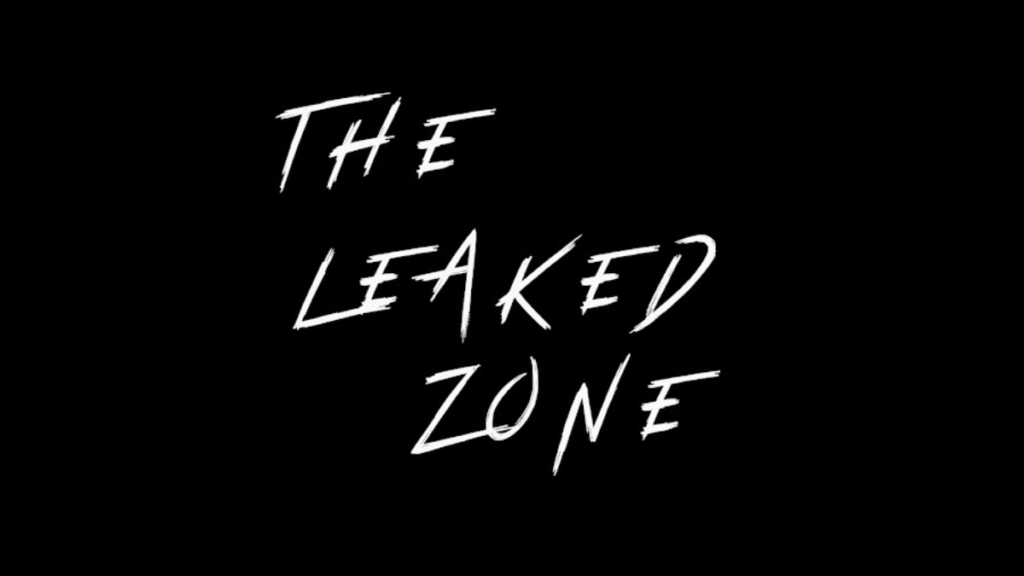LeakedZone a name that has sparked both curiosity and controversy in the digital realm. In an age where information is power, the act of leaking sensitive data has become a battleground for ethical debates. But what exactly is LeakedZone? And why does it continue to captivate our attention?
A hidden corner of the internet where classified documents, private emails, and confidential files are exposed for all to see. LeakedZone serves as a platform for whistleblowers, hackers, and individuals with questionable motives to disclose information that was never meant to be made public.
Some view LeakedZone as an avenue for truth-telling and transparency—a means to hold governments accountable or shed light on corporate wrongdoing. Others argue that it infringes upon privacy rights and undermines trust within organizations.
In this blog post, we will delve into the ethical dilemmas surrounding information disclosure through platforms like LeakedZone. We will explore its impact on individuals and organizations alike, examine real-world case studies such as the infamous Sony Pictures hack, discuss legal consequences faced by those responsible for leaks, and present arguments from both sides of this contentious issue.
So buckle up! Get ready to dive deep into the world of leaked information—where lines between right and wrong blur—and join us in pondering how we navigate the delicate balance between transparency and privacy in today’s digital age. Let’s begin our exploration of LeakedZone!
The Ethics of Information Disclosure
In today’s digital age, information is more accessible than ever before. With just a few clicks, we can uncover secrets and expose hidden truths. But what are the ethical implications of this rampant information disclosure? Is it truly justified to unveil someone’s private details without their consent?
The ethics of information disclosure revolve around the principles of transparency and privacy. On one hand, advocates argue that revealing sensitive information serves the greater good by holding individuals and organizations accountable for their actions. They believe that public knowledge promotes honesty and integrity.
On the other hand, critics contend that privacy should be respected at all costs. They emphasize the importance of personal boundaries and argue that certain pieces of information should remain confidential to preserve individual dignity and prevent harm.
When examining these ethical dilemmas, it becomes clear that there is no easy answer. The line between necessary disclosure and invasion of privacy is blurry at best. It requires careful consideration on a case-by-case basis.
The impact of leaked information extends beyond individual rights; organizations also bear significant consequences when their internal workings are exposed to the world. Leaks can damage public image, erode trust in institutions, or even lead to financial losses.
A notable case study illustrating these points is the Sony Pictures hack in 2014. Personal emails were leaked online for everyone to see, causing embarrassment and controversy within Hollywood circles. This incident sparked debates about whether such leaks serve any real purpose or simply perpetuate voyeurism.
From a legal standpoint, leaking classified or confidential information often carries severe repercussions under various jurisdictions worldwide. Whistleblower protection laws exist as an attempt to strike a balance between exposing wrongdoing while providing safeguards against retaliation for those who come forward with vital disclosures.
Arguments surrounding LeakedZone persist because they touch upon fundamental questions about our values as a society: how much transparency do we need? How much privacy are we willing to sacrifice? Striking this delicate equilibrium requires ongoing dialogue among stakeholders: individuals, organizations, lawmakers, and the public.
Impact on Individuals and Organizations
The leaking of sensitive information can have far-reaching consequences for both individuals and organizations. For individuals, the exposure of personal data can lead to identity theft, financial loss, and reputational damage. Imagine having your private conversations or intimate photos leaked to the public without your consent! It’s a violation of privacy that can cause immense emotional distress.
On the other hand, organizations also face significant challenges when their confidential information is leaked. Trade secrets, proprietary technology, and strategic plans exposed to competitors can result in lost competitive advantage or even bankruptcy. Moreover, customer trust may be shattered if sensitive data such as credit card information or medical records are compromised.
In today’s digital landscape where data breaches are becoming increasingly common, maintaining online security has become paramount for both individuals and organizations alike. Cybersecurity measures must be implemented rigorously to safeguard against potential leaks.
It is essential for society to strike a balance between transparency and privacy in order to protect both individuals’ rights and organizational integrity in the digital age. The conversation around LeakedZone highlights these ethical dilemmas surrounding information disclosure and urges us all to consider the implications before sharing any sensitive material with others – intentionally or unintentionally!
Case Study: The Sony Pictures Hack
In 2014, one of the most high-profile cyberattacks occurred when Sony Pictures Entertainment became the target of a devastating hack. This case study serves as a prime example of the ethical dilemmas surrounding information disclosure.
The hackers behind the attack, allegedly backed by North Korea, breached Sony’s network and leaked an immense amount of sensitive data. The stolen information included unreleased films, executive emails, employee personal details, and even scripts for upcoming movies. The leak sent shockwaves throughout Hollywood and beyond.
The impact on individuals was significant as personal emails were exposed to public scrutiny. Private conversations between top executives were laid bare for all to see. Careers were damaged, reputations tarnished, and relationships strained.
For organizations like Sony Pictures Entertainment, the consequences were equally severe. The leak cost them millions in damages – not just financially but also in terms of their reputation within the industry. They had to deal with lawsuits from employees whose personal information had been made public.
Legally speaking, leaking confidential information is a serious offense that can result in criminal charges against those responsible. In this case study alone, several individuals linked to North Korea faced international sanctions for their involvement in hacking Sony Pictures.
As with any controversial issue like LeakedZone or similar platforms that promote unauthorized data releases – there are arguments on both sides regarding its morality and legality.
Some argue that transparency should always prevail over privacy concerns since it holds people accountable for their actions and prevents corruption or misconduct from being hidden away.
Others believe that privacy is a fundamental right that should be respected at all costs – without proper guidelines or restrictions; leaks can lead to chaos where anyone’s private life could be invaded at any given moment.
Balancing transparency and privacy remains an ongoing challenge in our digital age where technology has empowered both whistleblowers aiming to expose wrongdoing and malicious actors seeking chaotic disruption.
Legal Consequences of Leaking Information
When it comes to leaking sensitive information, the legal ramifications can be far-reaching and severe. In our digital age, where data breaches seem to occur with alarming frequency, understanding the potential legal consequences is crucial.
First and foremost, it’s important to note that leaking confidential information is a violation of privacy laws in many countries. Individuals or organizations found responsible for such leaks could face civil lawsuits from those affected by the breach. These lawsuits can result in significant financial penalties and reputational damage.
In addition to civil liability, there may also be criminal charges brought against individuals involved in leaked information. Depending on the nature of the leaked data, charges such as theft, fraud, or unauthorized access to computer systems may apply. If convicted, individuals could face fines and even imprisonment.
Leaking classified government information can lead to serious national security implications. Governments are likely to investigate such leaks vigorously and prosecute those responsible under espionage or treason laws if applicable.
It’s worth noting that even journalists who publish leaked information may not be exempt from legal consequences entirely. While some jurisdictions offer limited protections for journalistic activities involving leaks deemed in the public interest, journalists must tread carefully within these boundaries.
Arguments for and against LeakedZone
For some, LeakedZone is seen as a champion of transparency in the digital age. They argue that leaking information can expose corruption, hold individuals and organizations accountable, and ultimately lead to positive change. In an era where governments and corporations have unprecedented power, LeakedZone can be viewed as a necessary counterbalance.
Supporters also believe that leaked information can serve as a valuable tool for whistleblowers who are trying to expose wrongdoing without fear of retribution. By providing an anonymous platform for disclosure, LeakedZone allows these individuals to shed light on important issues that may otherwise go unnoticed.
On the other hand, opponents argue that leaking information through platforms like LeakedZone violates privacy rights and undermines trust in institutions. They contend that there are legal channels available for addressing concerns or exposing wrongdoing, such as reporting to law enforcement or utilizing established whistleblower protection programs.
Critics also highlight the potential harm caused by indiscriminate leaks. Information released without proper context or verification can lead to misinformation and damage reputations unjustly. Furthermore, leaked data often contains personal details about innocent individuals who may become collateral victims in this pursuit of transparency.
As with many ethical dilemmas, there are valid arguments on both sides when it comes to LeakedZone. It is essential to strike a balance between transparency and privacy in order to navigate the complex landscape of information disclosure responsibly.
Conclusion
In today’s digital age, the concept of transparency is highly valued. It allows individuals to hold organizations accountable and promotes trust in society. However, it also raises concerns about privacy and ethical boundaries when it comes to information disclosure.
LeakedZone has undoubtedly sparked a heated debate on this topic. On one hand, supporters argue that leaking information can serve as a powerful tool for exposing wrongdoing and holding those responsible accountable. They believe that increased transparency leads to a more just society.







